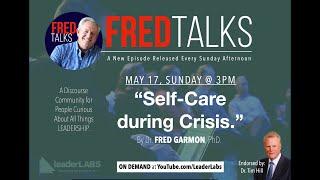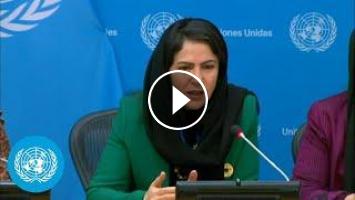Hybrid press briefing sponsored by the Permanent Mission of Ireland to the United Nations on "The Power of Inclusion: Afghan Women and Regional Prosperity".
Speakers: Ambassador Keith McBean of Ireland; Fatima Gailani (Former President of the Afghan Red Crescent); Fawzia Koofi (Former Deputy Speaker of the Afghan Parliament); Asila Wardak (Former Director General of UN Affairs in the Afghan Ministry of Foreign Affairs); and Naheed Sarabi (Former Deputy Finance Minister, Afghanistan).
Moderator: Margot Wallström (Former Foreign Minister of Sweden).
On the margins of the 68th Session of the Commission on the Status of Women, the former Deputy Speaker of the Afghan Parliament, Fawzia Koofi, today (12 Mar) said the Taliban is denying young women the right to education “under the name of Islam,” but in reality, it is “in contradiction with Islamic principles.”
Speaking to journalists in New York Koofi said, “in six days’ time, the schools will open in Afghanistan. The education year will start, and for the third year, the girls will not be allowed to go to school.”
The former Deputy Speaker noted that she was “one of those who experienced the same thing in the first time Taliban were in power,” and added that, “now the next generation of my sisters, all of a sudden, in a matter of, a blink of an eye, saw everything collapse and experienced the same thing.”
The former President of the Afghan Red Crescent, Fatima Gailani, told reporters that for “Afghan women, Muslim women, it is not just, a right. It goes much deeper than that. This is our duty.”
Gailani said, “closing schools for a woman who has been ordered, to learn is exactly like if I am fasting someone with shove food in my mouth, or if I am praying that someone will stand in front of me, will not allow me to bend.”
For her part, Afghanistan’s former Deputy Finance Minister, Naheed Sarabi, said, “I don't think there is any single example in the world where countries have achieved economic recovery in economic growth, without contribution of women or confining women to their houses and not allowing them to contribute. You cannot have sustainable economic growth and developing - as we are talking about SDGs - but undercutting civic virtues or denying women of their basic rights.”
The press briefing was moderated by the Former Foreign Minister of Sweden Margot Wallström and also included the participation of the former Director General of UN Affairs in the Afghan Ministry of Foreign Affairs, Asila Wardak.
Speakers: Ambassador Keith McBean of Ireland; Fatima Gailani (Former President of the Afghan Red Crescent); Fawzia Koofi (Former Deputy Speaker of the Afghan Parliament); Asila Wardak (Former Director General of UN Affairs in the Afghan Ministry of Foreign Affairs); and Naheed Sarabi (Former Deputy Finance Minister, Afghanistan).
Moderator: Margot Wallström (Former Foreign Minister of Sweden).
On the margins of the 68th Session of the Commission on the Status of Women, the former Deputy Speaker of the Afghan Parliament, Fawzia Koofi, today (12 Mar) said the Taliban is denying young women the right to education “under the name of Islam,” but in reality, it is “in contradiction with Islamic principles.”
Speaking to journalists in New York Koofi said, “in six days’ time, the schools will open in Afghanistan. The education year will start, and for the third year, the girls will not be allowed to go to school.”
The former Deputy Speaker noted that she was “one of those who experienced the same thing in the first time Taliban were in power,” and added that, “now the next generation of my sisters, all of a sudden, in a matter of, a blink of an eye, saw everything collapse and experienced the same thing.”
The former President of the Afghan Red Crescent, Fatima Gailani, told reporters that for “Afghan women, Muslim women, it is not just, a right. It goes much deeper than that. This is our duty.”
Gailani said, “closing schools for a woman who has been ordered, to learn is exactly like if I am fasting someone with shove food in my mouth, or if I am praying that someone will stand in front of me, will not allow me to bend.”
For her part, Afghanistan’s former Deputy Finance Minister, Naheed Sarabi, said, “I don't think there is any single example in the world where countries have achieved economic recovery in economic growth, without contribution of women or confining women to their houses and not allowing them to contribute. You cannot have sustainable economic growth and developing - as we are talking about SDGs - but undercutting civic virtues or denying women of their basic rights.”
The press briefing was moderated by the Former Foreign Minister of Sweden Margot Wallström and also included the participation of the former Director General of UN Affairs in the Afghan Ministry of Foreign Affairs, Asila Wardak.
- Category
- United Nations
- Tags
- UN, United Nations, UNGA
Be the first to comment













